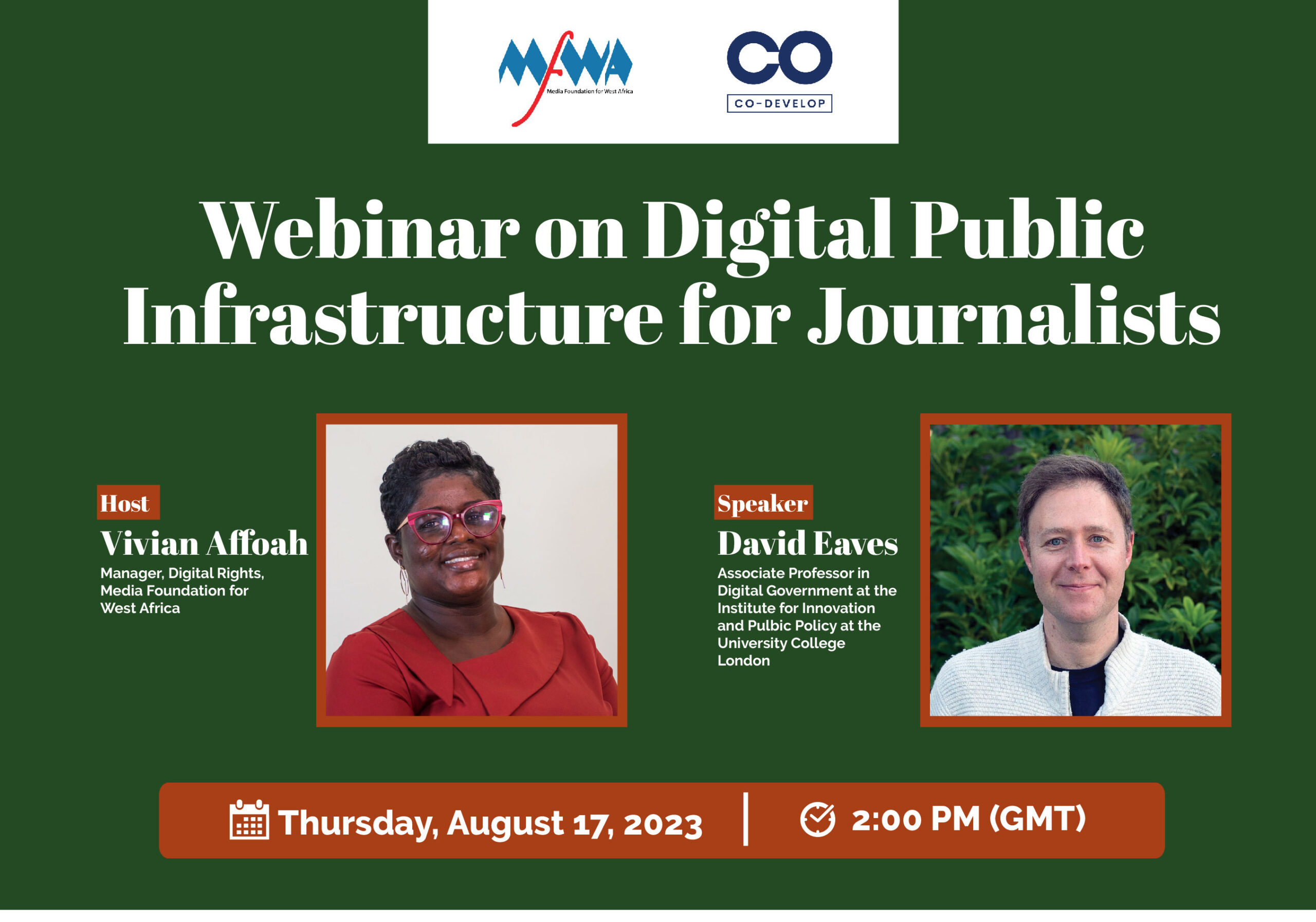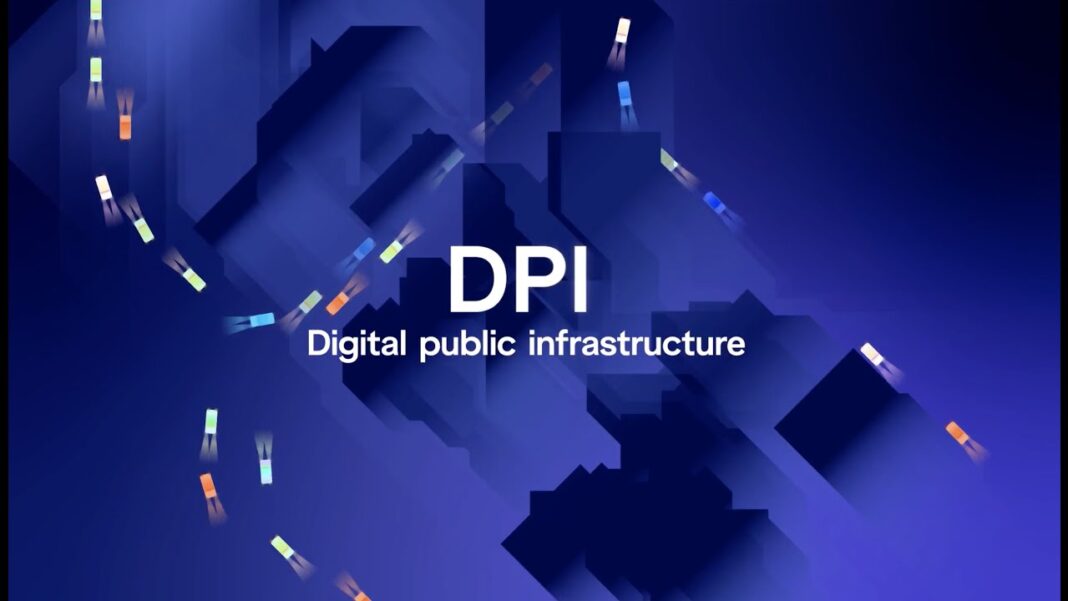All over the world, governments are radically transforming public service delivery from analog to digital, by adopting and streamlining Digital Public Infrastructure (DPI). But, like most forms of social transformations, the adoption and deployment of DPIs is fraught with the challenges of limited public awareness, participation, inclusion and accountability.
The media, who are often the source of information and public education, are themselves less knowledgeable about these developments and thus, provide far less or no coverage at all on the issues.
Consequently, journalists from across West Africa were on Thursday, August 17, 2023, schooled on DPIs and enlightened on how to ensure that the implementation of DPIs by governments is safe, equitable and inclusive across social strata.

The DPI webinar was hosted by the Media Foundation for West Africa (MFWA) in partnership with Co-Develop, and featured David Eaves, Associate Professor in Digital Government at the Institute for Innovation and Public Policy, University College of London, as the main speaker. Prof. Eaves highlighted the need for journalists to monitor and ensure that in designing and streamlining DPIs, governments in West Africa are not doing so to the disadvantage of sections of society, especially the less privileged.
What is DPI
Co-Develop, a global non-profit Fund that acts as platform for countries to mobilize resources for building inclusive, safe and equitable DPI, defines it as a “society-wide, digital capabilities that are essential to participation in society and markets as a citizen, entrepreneur, and consumer in a digital era.”
In other words, DPI is all the digital organizational structures and facilities needed for the operation of a society or enterprise. Examples are electronic governance (e-governance) and electronic payment (e-payment) systems.
The cruciality of DPIs struck the world during the COVID-19 pandemic when people were constrained to rely more on digital means of communicating and transferring assistance, especially remittances, to loved ones.
According to Prof. Eaves, globally, the digitalization of public service delivery by governments has come with certain problems, including the duplication of data by agencies across government structures. These duplications have spawned digital bureaucracies that are also very costly to governments. Consequently, the move is now toward adopting and streamlining DPIs that collect and store data in ways that eliminate wasteful duplications across various agencies of government.
In the media’s watchdog role, Prof. Eaves said journalists must be on the lookout to ensure that in the process of streamlining and consolidating digital governance, governments become efficient and not so powerful that they cannot be held to account by citizens. Journalists, he said, can do this by asking questions such as; who these systems are being designed for; who is designing it; and who is to be held accountable when things go wrong.
The DPI Africa Journalism Fellowship Programme
The webinar was a precursor to a 3-month DPI Journalism Fellowship Programme in West Africa. The Fellowship is hosted by the MFWA with funding from Co-Develop. It begins from September to December 2023. Twenty journalists selected from Ghana, Nigeria, Sierra Leone, The Gambia, Niger, Benin, Togo, Cape Verde, Cote d’Ivoire and Senegal will constitute the maiden cohort.
The Fellowship will be both virtual and in-person and has key activities such as Virtual Training workshops on DPI with Assignments/presentations by Fellows; Production and publication/broadcast of stories on DPI by Fellows and a two-week residential gathering of DPI Fellows in Accra, Ghana for further trainings and institutional field visits.
According to the Executive director of the MFWA, Sulemana Braimah, the initiative is intended to grow a cadre of West African journalists who would have the relevant knowledge and skills to produce impactful reports on DPIs. Ultimately, this should help increase public awareness and access to information on DPI deployment across the region.
Robert Karanja, Senior Partner at Co-Develop, said his organisation remains committed to accelerating the adoption of Digital Public Infrastructure (DPI) that is inclusive, safe, and equitable.





